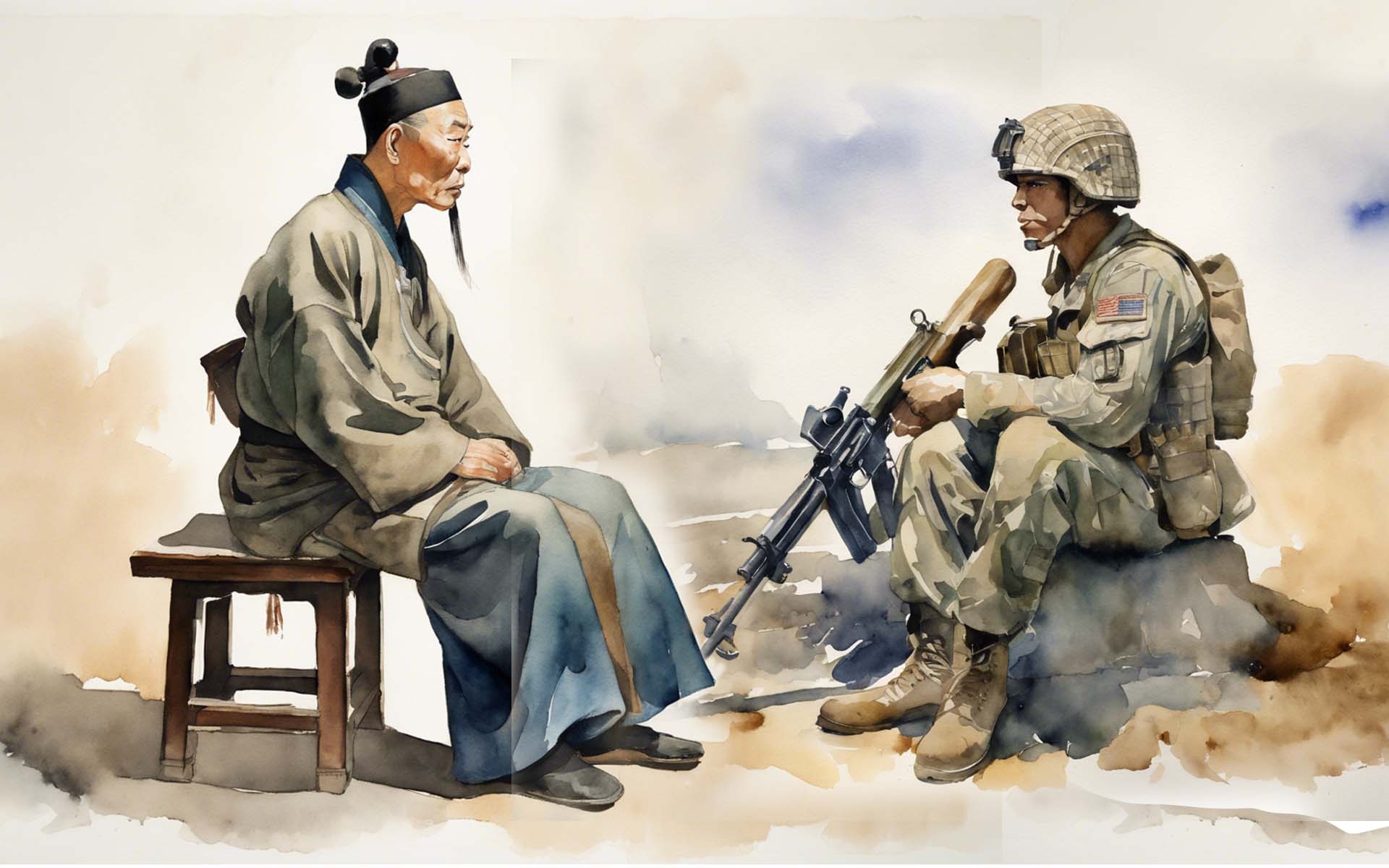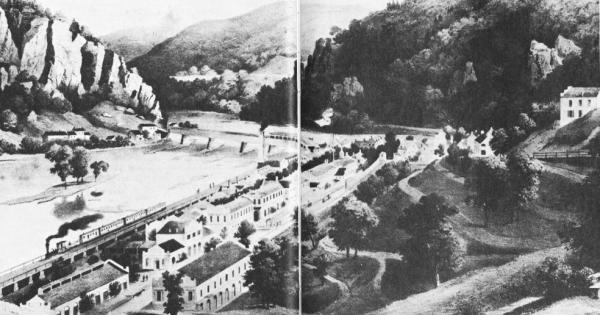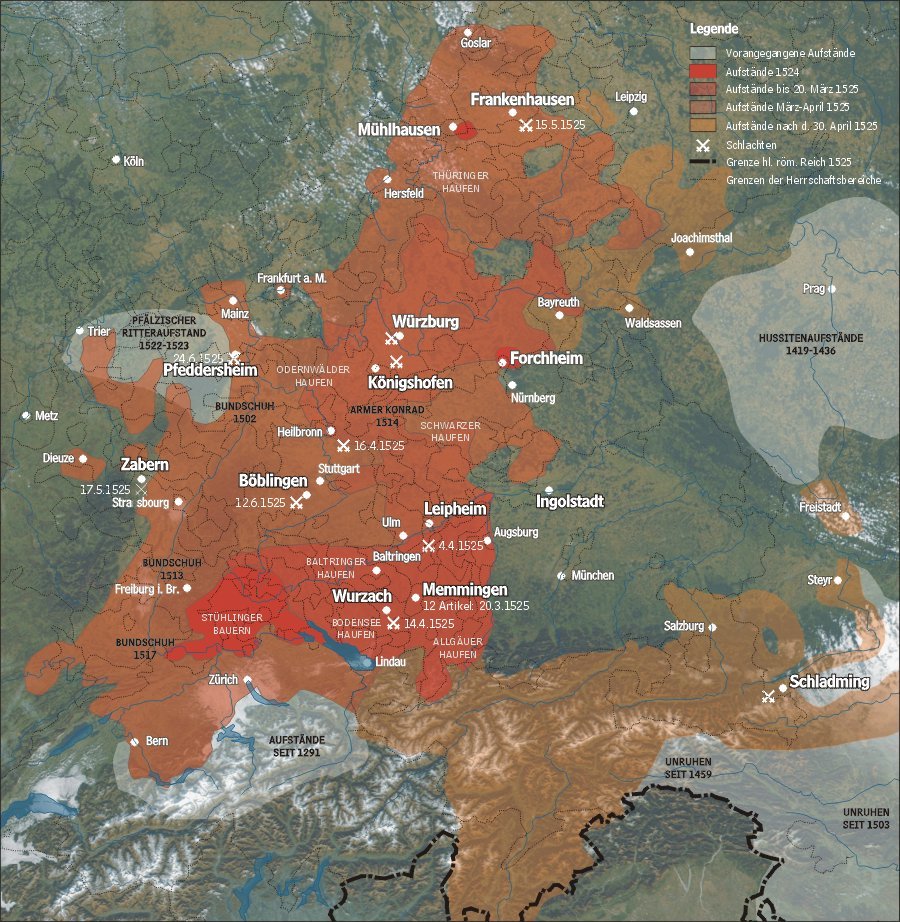history

cross-posted from: https://lemmy.world/post/21066079

i found this book in my cupboard, forgot where i got it from. is it any good? i know tom holland has said some cringe stuff on his "the rest is history" podcast but i've never read one of his books

The Dongfeng (simplified Chinese: 东风; traditional Chinese: 東風; lit. 'East Wind') series, typically abbreviated as "DF missiles", are a family of short, medium, intermediate-range and intercontinental ballistic missiles operated by the Chinese People's Liberation Army Rocket Force (formerly the Second Artillery Corps). History In the early years of New China, the industrial development of China mainly depended upon capital investment and technical assistance. At that period, China exchanged through foreign trade at equal values for “156 types” of Soviet industrial project assistance, with building nuclear bombs and missile factories and corresponding technologies included. Chinese missile production started from imitating Soviet missiles. At the end of 1957, Soviet provided China with two P-1 missile models, and in June, 1958, the first batch of drawings and technical documentation of P-2 missiles was transferred. Scientists and engineers formed the Fifth Institute of National Defense Ministry (hereinafter called “the Fifth Institute”) , translated and copied those documents and made preparation for imitating the “1059”model missile. “1059” was named for paying homage to 10th anniversary of the founding of New China of October 1, 1959. Under the lead of Qian Xuesen, scientists and engineers gained a thorough grasp of design theories, overcame technical obstacles and managed to advance imitations of Soviet missiles. While the whole Fifth Institute was quietly getting immersed in hard work, the Sino-Soviet relationship suddenly cooled down and the “honeymoon period” of the two nations came to end. In June, 1956, the Soviets began to tear up the “Sino-Soviet New National Defense Technology Agreement”, and withdrew all the Soviet experts in the next year and abolished all the joint projects. Although that following serious and tough situation fell upon the shoulders of Qian Xuesen, his confidence, self-improvement and self-esteem once again showed their power. During several round-table meetings, Qian Xuesen called upon all the personnel in the Fifth Institute with great passion not to give up or hold back, and to carry on the imitation of missiles. Qian stated, >“All of us in the Fifth Institute would certainly get straight and upright under the pressure of the fact that Soviet experts were withdrawn. We are able to build our own missile mission with our best efforts, and the Soviets cannot overwhelm us!” >“We shall continue our work day and night; we shall burn the candles at both ends!” >“We will certainly catch up with progress!” Just like that, inspired by Qian Xuesen’s passion and inspiration, all comrade fellows bent their efforts towards only one direction, held their breath and swore to launch the “1059”missile to the sky. At 9:00 am, under the command of chief officer, “1059”missile rose to sky, and hit the target exactly within the proposed impact area at the distance of 554km from the launch site after flying for 7 minutes and 37 seconds. This “missile of our own”- “1059”was named for “Dongfeng 1”, DF-1 for short. From then on, Qian Xuesen led the Fifth Institute to succeed in improving and designing the “Dongfeng 2 and Dongfeng 3” missiles by ourselves and Dongfeng missile family were expanded and gradually grew up to be the champion weapons of our national defense mission. “Dongfeng 31-A model” nuclear missile attending our 60th anniversary military parade of the New China on the 2009 National Day was the strong new member of the Dongfeng missile family. On October 16, 1964, the first atomic bomb exploded in China and the rising mushroom cloud astonished the world. 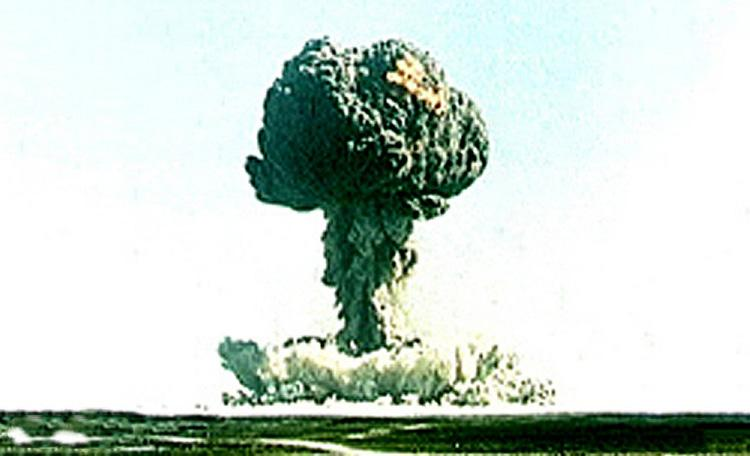 However, this atomic bomb was detonated by fixing it upon an iron cradle in advance, which caused western media to state it was “only a bomb without a gun” to satirize China, faced with the reality that, although atomic bomb had been produced, it still could not be discharged. How to change that situation? Undoubtedly, missile is the best “gun”. Qian Xuesen proposed to develop nuclear missiles carrying nuclear warheads on the basis of successful test launches of mid-and-short-range missiles, and that is the well-known pioneering work of “combination of missile and atomic bomb” at the present time. Nuclear missiles are very different from typical ones. A subtle mistake could incur irreparable losses. Qian Xuesen led the Fifth Institute to make improvements for the “Dongfeng 2”missile. All the comrades worked hard and took every detail quite seriously and carefully. On October 26, 1966, Marhshal Nie Rongzhen and Qian Xuesen came to the site to personally monitor the docking process of the “DF-2A”missile body and atomic warhead. On the site, a young technician named Tian Xiankun took charge of that docking task. Given that the distance between the warhead and missile body was just longer than one foot, only by moving their bodies sideways could they go there. However, despite the narrow space, Tian Xiankun finished more than a hundred movements with perfect accuracy through his highly skilled technologies and tools, and succeeded in docking warheads and missile bodies just like doing embroidery on cloth. On October 27, 9:00 am, Tong Lianjie, one of the seven operators pressed the button of the principal machine of the control platform, and China’s first nuclear missile slowly rose and flew to the sky with a roaring boom. However, the control room fell into quiet after the missile taking off, and no one could dare take a heavy breath. In their eyes, the nine minutes of estimated flight time seemed endless. At last, Lop Nur testing ground delivered a report,stating: the nuclear missile hit the target exactly and the nuclear explosion smoothly took place! That moment was so valuable and delightful! The seven operators in the underground control room could not help but shed tears of joy… To celebrate that great and historic moment, and learning we were prepared to build the Qian Xuesen Library, the Second Artillery Force of the PLA donated to our library a missile with the same model as the “DF-2A”nuclear missile , and allowed us to use it as a large-scale physical subject exhibit in the Library. On March 27, 2011, under witness of the public, military officers and soldiers together with the construction company managed to unload the missile and then hoisted it to move from roof to rotunda, which took 45 minutes to complete the whole lift and set-up process. The most glorious and most dangerous moments condensed into extraordinary, historic, and frozen time, which silently says, the peaceful time and life today we have derive from the endless efforts of Qian Xuesen and others in very tough environment. - [“Dong Feng 2A”Missile ](https://www.qianxslib.sjtu.edu.cn/en/research/research04_details.php?articleid=1255) **Megathreads and spaces to hang out:** - 📀 Come listen to music and Watch movies with your fellow [Hexbears nerd, in Cy.tube](https://live.hexbear.net/c/movies) - 🔥 Read and talk about a current topics in the [News Megathread](https://hexbear.net/post/3627378) - ⚔ Come talk in the [New Weekly PoC thread](https://hexbear.net/post/3677151) - ✨ Talk with fellow Trans comrades in the [New Weekly Trans thread](https://hexbear.net/post/3626970) - 👊 Share your gains and goals with your comrades in the [New Weekly Improvement thread](https://hexbear.net/post/3673503) **reminders:** - 💚 You nerds can join specific comms to see posts about all sorts of topics - 💙 Hexbear’s algorithm prioritizes comments over upbears - 💜 Sorting by new you nerd - 🌈 If you ever want to make your own megathread, you can reserve a spot [here nerd](https://hexbear.net/post/261657) - 🐶 Join the unofficial Hexbear-adjacent Mastodon [instance toots.matapacos.dog](https://toots.matapacos.dog/explore) **Links To Resources (Aid and Theory):** **Aid:** - 🌈 [LGBTQ+ Resource Post](https://hexbear.net/post/279079) - 🍉 [Resources for Palestine](https://buildpalestine.com/2021/05/15/trusted-organizations-to-donate-to-palestine/) - [🐌☕ Zapatista Coffee](https://schoolsforchiapas.org/store/coffee-corn-and-agricultural/zapatista-coffee/) **Theory:** - ❤️[Foundations of Leninism](https://www.marxists.org/reference/archive/stalin/works/1924/foundations-leninism/index.htm) - ❤️[Anarchism and Other Essays](https://theanarchistlibrary.org/library/emma-goldman-anarchism-and-other-essays)
I’d really like to know more about John Brown, but I just can’t get through biographical books, for anyone. Any good documentaries on the man, the myth, the legend?

Enver Hoxha, born on this day in 1908, was the communist leader of Albania from 1946 to 1985, leaving behind a complex legacy of feminism and greatly improved access to healthcare and education. Hoxha is also known for having sharp ideological and political disagreements with the Soviet Union and communist Yugoslavia, siding most strongly with and receiving aid from Maoist China. He was First Secretary of the Party of Labour of Albania from 1941 until his death in 1985, a member of its Politburo, chairman of the Democratic Front of Albania, and commander-in-chief of the Albanian People's Army. He was the twenty-second prime minister of Albania from 1944 to 1954 and at various times was both foreign minister and defence minister of the country. Hoxha was born in Ergiri in 1908 and became a grammar school teacher in 1936. Following the Italian invasion of Albania, he joined the Party of Labour of Albania at its creation in 1941 in the Soviet Union. Before coming into power, Hoxha was a French school teacher and librarian, becoming a communist partisan after fascist Italy invaded Albania in 1939. In March 1943, the first National Conference of the Communist Party elected Hoxha formally as First Secretary. It was in this position as First Secretary that Hoxha became head of state after the Albanian monarchy was abolished in 1946. Hoxha declared himself a Marxist–Leninist and strongly admired Soviet Leader Joseph Stalin. The Agrarian Reform Law was passed in August 1945. It confiscated land from beys and large landowners, giving it without compensation to peasants. 52% of all land was owned by large landowners before the law was passed; this declined to 16% after the law's passage. The State University of Tirana was established in 1957, which was the first of its kind in Albania. The medieval Gjakmarrja (blood feud) was banned. Malaria, the most widespread disease, was successfully fought through advances in health care, the use of DDT, and through the draining of swampland. In 1938 the number of physicians was 1.1 per 10,000 and there was only one hospital bed per 1,000 people. In 1950, while the number of physicians had not increased, there were four times as many hospital beds per head, and health expenditures had risen to 5% of the budget, up from 1% before the war. Under Hoxha's leadership, the Albanian literacy rate improved from 5-10% in rural areas to more 90%. Hoxha was also a proponent of women's rights, stating "the entire party and country should hurl into the fire and break the neck of anyone who dared trample underfoot the sacred edict of the party on the defense of women's rights". Accordingly, more than 175 times as many women attended secondary schools in 1978 than had done so in 1938. Relations with Yugoslavia At this point, relations with Yugoslavia had begun to change. The roots of the change began on 20 October 1944 at the Second Plenary Session of the Communist Party of Albania. The Session considered the problems that the post-independence Albanian government would face. However, the Yugoslav delegation which was led by Velimir Stoinić accused the party of "sectarianism and opportunism" and blamed Hoxha for these errors. He also stressed the view that the Yugoslav Communist partisans spearheaded the Albanian partisan movement. Tito's position on Albania was that it was too weak to stand on its own and that it would do better as a part of Yugoslavia. Hoxha alleged that Tito had made it his goal to get Albania into Yugoslavia, firstly by creating the Treaty of Friendship, Co-operation and Mutual Aid in 1946. In time, Albania began to feel that the treaty was heavily slanted towards Yugoslav interests, much like the Italian agreements with Albania under Zog that made the nation dependent upon Italy When Yugoslavia publicly broke with the Soviet Union, Hoxha's support base grew stronger. Then, on 1 July 1948, Tirana called on all Yugoslav technical advisors to leave the country and unilaterally declared all treaties and agreements between the two countries null and void Relations with the Soviet Union From 1948 to 1960, $200 million in Soviet aid was given to Albania for technical and infrastructural expansion. Albania was admitted to the Comecon on 22 February 1949 and served as a pro-Soviet force on the Adriatic. Relations with the Soviet Union remained close until the death of Stalin in March 1953. Under Nikita Khrushchev, Stalin's eventual successor, aid was reduced and Albania was encouraged to adopt Khrushchev's specialisation policy. Under it, Albania would develop its agricultural output in order to supply the Soviet Union and other Warsaw Pact countries while they would be developing products of their own, which would, in theory, strengthen the Warsaw Pact. However, this also meant that Albanian industrial development, which was stressed heavily by Hoxha, would be hindered In the years after Stalin's death, Hoxha grew increasingly distressed by the policies of the Soviet leadership and of Khrushchev in particular. China was also disillusioned with Soviet behavior at this time, and Hoxha found common ground with Mao Zedong's criticisms of Moscow. Hoxha and the PLA broke with the Soviet Union and formed a bloc with the Communist Party of China in denouncing the post-Stalin USSR as "revisionist" and "social-imperialist" . (See, for example, his speech at the Meeting of 81 Communist Parties in Moscow in 1960, "[Reject the Revisionist Theses of the XX Congress of the CPSU and the Anti-Marxist Stand of Krushchev's Group! Uphold Marxism-Leninism!](https://www.marxists.org/reference/archive/hoxha/works/nov1960.htm)".) By 1961 Hoxha's attacks on the "revisionist" Soviet leadership had so infuriated Khrushchev that he elected first to terminate Moscow's economic aid to Albania and ultimately to sever diplomatic relations entirely. Relations with China However, Hoxha's relations with the Maoists were not entirely smooth. For one thing they had differing notions of "protracted people's war." Mao and his followers world-wide insisted that in peasant countries urban insurrection must occur in the last stages of the revolutionary war, which until then would have the countryside as its theater of operations. Hoxha insisted, on the other hand, that the cities ought not to be left until last but that actions must be carried out simultaneously in city and countryside. As revolutionary movements gathered momentum in Latin America, Africa, and Asia, continents with large rural populations, these issues were at the center of intense debates between "Hoxhaists" and Maoists. At the start of Albania's Third Five-year Plan, China offered Albania a loan of $125 million which would be used to build twenty-five chemical, electrical and metallurgical plants in accordance with the Plan. However, the nation discovered that the task of completing these building projects was difficult, because Albania's relations with its neighbors were poor and because matters were also complicated by the long distance between Albania and China. The financial aid which China provided to Albania was interest-free and it did not have to be repaid until Albania could afford to do so. China never intervened in Albania's economic output, and Chinese technicians and Albanian workers both worked for the same wages. During the Cultural Revolution, China entered into a four-year period of relative diplomatic isolation, however, its relations with Albania were positive. Albania's relations with China began to deteriorate on 15 July 1971, when United States President Richard Nixon agreed to visit China in order to meet with Zhou Enlai. Hoxha believed that China had betrayed Albania. The result of this criticism was a message from the Chinese leadership in 1971 in which it stated that Albania could not depend on an indefinite flow of aid from China. Following Mao's death on 9 September 1976, Hoxha remained optimistic about Sino-Albanian relations, but in August 1977, Hua Guofeng, the new leader of China, stated that Mao's Three Worlds Theory would become official foreign policy. Hoxha viewed this as a way for China to justify having the U.S. as the "secondary enemy" while viewing the Soviet Union as the main one, thus allowing China to trade with the U.S. Eventually, Hoxha broke with China in 1978. In that year he published [Imperialism and the Revolution](https://www.marxists.org/reference/archive/hoxha/works/imp_rev/toc.htm), in which he declared that Mao Zedong was not a Marxist-Leninist and that there were no Marxist-Leninists in China. From then on, Hoxha's declared that Albania not only would become a model socialist republic on its own, but that it was the only socialist country left in the world. On 13 July 1978, China announced that it was cutting off all of its aid to Albania. For the first time in modern history, Albania did not have an ally and it also did not have a major trading partner. During this period, Albania was the most isolated country in Europe. In 1983, Albania imported goods which were worth $280 million but it exported goods which were worth $290 million, producing a trade surplus of $10 million. In 1973, Hoxha suffered a heart attack from which he never fully recovered. In increasingly precarious health from the late 1970s onward, he turned most state functions over to Ramiz Alia. Hoxha was succeeded by Ramiz Alia, who oversaw the fall of communism in Albania. [Enver Hoxha Page ](https://espressostalinist.com/marxism-leninism/enver-hoxha-page/) [Enver Hoxha Archive](https://www.marxists.org/reference/archive/hoxha/works-index.htm) **Megathreads and spaces to hang out:** - 📀 Come listen to music and Watch movies with your fellow [Hexbears nerd, in Cy.tube](https://live.hexbear.net/c/movies) - 🔥 Read and talk about a current topics in the [News Megathread](https://hexbear.net/post/3627378) - ⚔ Come talk in the [New Weekly PoC thread](https://hexbear.net/post/3677151) - ✨ Talk with fellow Trans comrades in the [New Weekly Trans thread](https://hexbear.net/post/3626970) - 👊 Share your gains and goals with your comrades in the [New Weekly Improvement thread](https://hexbear.net/post/3673503) **reminders:** - 💚 You nerds can join specific comms to see posts about all sorts of topics - 💙 Hexbear’s algorithm prioritizes comments over upbears - 💜 Sorting by new you nerd - 🌈 If you ever want to make your own megathread, you can reserve a spot [here nerd](https://hexbear.net/post/261657) - 🐶 Join the unofficial Hexbear-adjacent Mastodon [instance toots.matapacos.dog](https://toots.matapacos.dog/explore) **Links To Resources (Aid and Theory):** **Aid:** - 🌈 [LGBTQ+ Resource Post](https://hexbear.net/post/279079) - 🍉 [Resources for Palestine](https://buildpalestine.com/2021/05/15/trusted-organizations-to-donate-to-palestine/) - [🐌☕ Zapatista Coffee](https://schoolsforchiapas.org/store/coffee-corn-and-agricultural/zapatista-coffee/) **Theory:** - ❤️[Foundations of Leninism](https://www.marxists.org/reference/archive/stalin/works/1924/foundations-leninism/index.htm) - ❤️[Anarchism and Other Essays](https://theanarchistlibrary.org/library/emma-goldman-anarchism-and-other-essays)
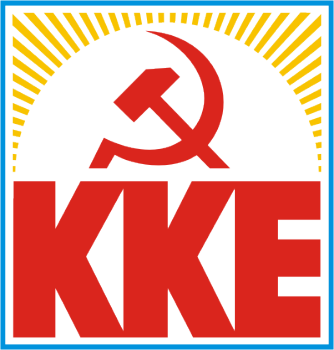 www-rizospastis-gr.translate.goog
www-rizospastis-gr.translate.goog
Translated by Google so it might read in an odd way here and there
cross‐posted from: https://lemmygrad.ml/post/2298758 > In Fascist Italy, [“Columbus Day” was created by Mariano Lucca, a failed politician turned reporter who interviewed Adolf Hitler and Benito Mussolini. It was likely intended to dismiss and normalize the well known atrocities that Columbus committed.](https://nitter.poast.org/i/status/1447631319953862659#m) Its introduction to Imperial America, however, was more complex: > > >To truly understand Columbus Day, one must learn about an important name in Italian‐American history: Generoso Pope. > > > >In 1937, following the popularity and success of newspaper magnate Generoso Pope’s New York City Columbus Day Parade, President Franklin Roosevelt declared October 12th a national holiday commemorating Christopher Columbus’s “discovery of North America.” Although the Italian‐born, Brasilia‐affiliated explorer sailing under the Spanish Empire failed to ever set foot on the North American continent, Italians in America had accrued a kinship to the famed navigator. > > > >[During the 1920s and ’30s, the Fascist Party in Italy courted Italian immigrant communities in the U.S., which they considered “colonies” of the [Fascist] state. The Fascists and their sympathizers helped organize the first [U.S. Fascist convention in Philadelphia](https://www.onlinelibrary.wiley.com/doi/pdf/10.1111/j.2050-411X.1977.tb00433.x) and lobbied to make Columbus day a national holiday. ([Source.](https://pummarol.com/?p=137))] > > > >While Pope’s Columbus Day Parade (starting in 1929) was not the first celebration of Columbus that New York had seen, his would quickly become a tradition there. While the establishment of a formal Columbus Day may seem to be an outwardly straightforward process, a deeper dive into Pope’s involvement with powerful political players reveals a profound meaning of the holiday that extends beyond the mere celebration of Columbus himself. > > > >During the Depression Era, Pope was considered one of the most impactful political power brokers within the Democratic Party, and he would eventually be appointed the head of the Italian division within the Democratic National Committee by President Roosevelt himself. Pope owned seven Italian‐language newspapers as well as the radio station WHOM, and his flagship paper, *Il Progresso Italo‐Americano*, was the largest Italian‐language newspaper in the United States with a circulation nearing 200,000 copies (he had, notably, purchased the paper from a lesser‐known owner for the modern‐day equivalent of $261 million). > > > >The source of Pope’s political power resided in his influence over the Italian‐American voting bloc through his newspaper empire, as Italian immigrants depended on his papers for a sense of community and for news written in their native language. Galvanizing the Italian voting bloc, Pope played a pivotal role in securing elections for various New York City politicians and judges. > > > >But Pope also played a significant role in world affairs: **He was considered one of the most influential fascist propagandists in the U.S. for Mussolini’s […] régime. To provide a few significant examples of his fascist status, Pope was a member of the fascist Lictor Federation and its predecessor, the Fascist League of North America (FLNA); he employed multiple known fascists; he was photographed performing a fascist salute in Rome in 1937; lastly, he was awarded the honorary title of Grand Officer of the Crown of Italy for his service to fascism in America.** > > > >Following the FLNA’s disbandment in 1929, the type of propaganda that was perpetuated within the U.S. began to shift from the domain of politics to that of culture, bolstering Italian nationalistic sentiments in immigrants and second‐generation Italian‐Americans to create, as one history of early 20th century Italian immigrants put it, a people “spiritually tied to fascist Italy by linguistic [and cultural] bonds.” > > > >Following his first successful Columbus Day parade, Pope met in March 1930 with FDR, then governor of New York, to discuss the potential for a state holiday in celebration of Columbus. Although the idea was received favorably, Pope lacked the necessary political capital to get it enacted. > > > >Four years later, following Roosevelt’s 1932 presidential victory, **the fascist newspaper kingpin petitioned the president to reconsider his previous stance on the Columbus Day holiday. In a nod to Pope’s prolonged help to FDR through consistently favorable coverage in his papers, as well as to acknowledge recent race‐based hate crimes committed against Italian immigrants and a sign of appreciation for their turnout in the recent election, President Roosevelt declared October 12th a national holiday. With the establishment of Columbus Day, Generoso Pope had succeeded in solidifying Christopher Columbus’s place in U.S. history and within the minds of Italian‐Americans as a near‐mythic entity.** > > > >**Columbus Day and Pope’s Columbus Day Parade were both founded with fascist ideologies in mind, which was clear and ever‐present at the New York City parades prior to World War II.** At the 1936 parade, according to one account, prominent politicians were implored by anti‐fascists not to attend, as “local fascist papers have announced that uniformed Fascisti will participate in military formation.” > > > >In 1937, when FDR declared Columbus Day a federal holiday, **spectators at the subsequent parade allegedly cheered loudly and raised their hands in the infamous fascist salute when Italy’s fascist anthem, “Giovinezza,” was played. The next year’s parade, the *New York Times* reported, saw spectators shouting “Viva Mussolini” along the route.** > > > >When Mussolini’s Italy declared war on the U.S. on December 11, 1941, hundreds of known fascist sympathizers were quickly incarcerated by the government for their enemy activities. Fortunately for Pope, in the weeks prior to the war’s declaration, he had begun distancing himself from Mussolini’s fascism and even publicly declared “fealty to the U.S.” in an October 1940 *New York Times* article. > > > >Though many of these incarcerated fascists were his known associates, Pope continued advising FDR and the Democratic National Committee regarding Italian‐Americans, particularly during the 1944 election. [[Among other things](https://web.archive.org/web/20200611182445/https://twitter.com/EricDavisMiddVT/status/1271128893236350978), [Generoso Pope also ordered mobster Carmine Galante to murder the antifascist journalist Carlo Tresca in 1943. Pope’s son, Generoso Jr., was a CIA officer who founded the National Enquirer with loans from Frank Costello and Roy Cohn, and ran the paper like an intelligence‐gathering network where two subjects were off limits: the CIA and the mob.](https://nitter.poast.org/i/status/1461914462601064450)] > > (Emphasis added.) > > In 1925, Benito Mussolini declared Columbus Day a national holiday in Fascist Italy: > > 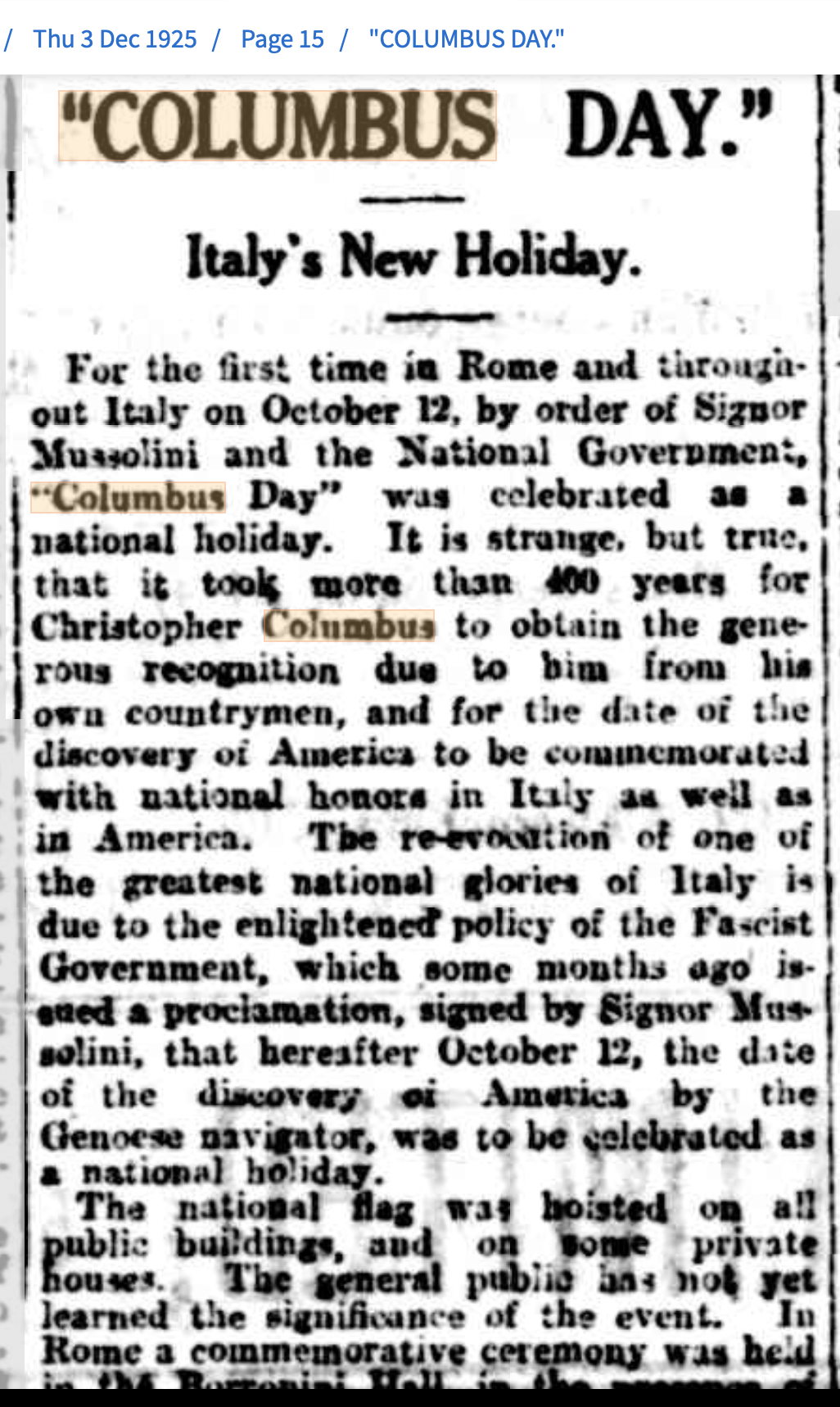 > > :::spoiler [Transcript] > ># “COLUMBUS DAY.” > > > >--- > >**Italy’s New Holiday.** > > > >--- > >For the first time in Rome and throughout Italy on October 12, by order of Signor Mussolini and the National Government, “Columbus Day” was celebrated as national holiday. It is strange, but true, that it took more than 400 years for Christopher Columbus to obtain the generous recognition due to him from his own countrymen, and for the date of the discovery of America to be commemorated with national honors in Italy an well as in America. The re‐evaluation of one of the greatest national glories of Italy is due to the enlightened policy of the Fascist Government, which some months ago issued a proclamation, signed by Signor Mussolini, that hereafter October 12, the date of the discovery oi America by the Genoese navigator, was to be celebrated as a national holiday. > > > >The national flag was hoisted on all public buildings, and on some private houses. The general public has not yet learned the significance of the event. In Rome a commemorative ceremony was held > > [*sic*] > ::: > > ([Source.](https://nitter.poast.org/i/status/1562994267555246085)) > > Furthermore, Fascist Italy used a 1927 monument dedication in Richmond to spread propaganda and declared fake news about atrocities it was actively committing: > > 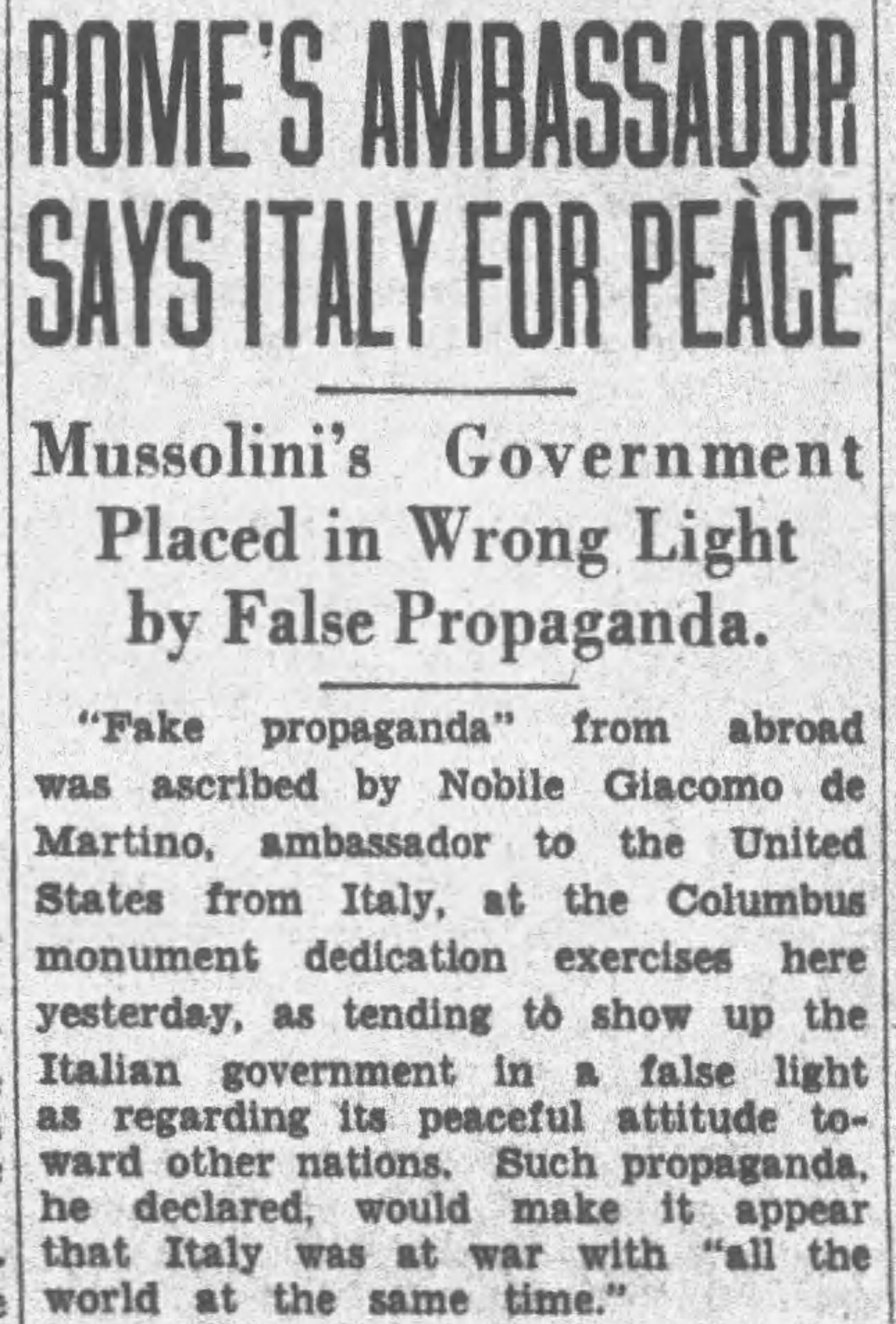 > > :::spoiler [Transcript] > ># ROME’S AMBASSADOR SAYS ITALY FOR PEACE > > > >--- > >Mussolini’s Government Placed in Wrong Light by False Propaganda. > > > >--- > >“Fake propaganda” [*sic!*] from abroad was ascribed by Nobile Giacomo de Martino, ambassador to the United States from Italy, at the Columbus monument dedication exercises here yesterday, as tending to show up the Italian government in a false light as regarding its peaceful attitude toward other nations. Such propaganda, he declared, would make it appear that Italy was at war with “all the world at the same time.” > ::: > > ([Source.](https://nitter.poast.org/i/status/1579488355892756482) [Footnote.](https://nitter.poast.org/i/status/1446581617422647299) On a related note, [I read that](https://nitter.poast.org/i/status/1348508476780072961) a ‘Mussolini groupie’ donated the statue in San Francisco near Coit Tower.) > > [As early as 1936, the antifascist Italian‐American labor newspaper editor Girolamo Valenti warned that Columbus Day celebrations was furthering the cause of fascism.](https://web.archive.org/web/20200611024133/https://twitter.com/achakrava/status/1270906671355711490) Additionally: > > >Italian‐Americans in RI commemorated the [WWI] Battle of the Piave River, the March on Rome, the Birth of [Ancient] Rome, and Columbus Day with fascist salutes, with a (controversial) 1937 Columbus Day parade in West Warwick even featuring Black Shirts marching in formation. > > 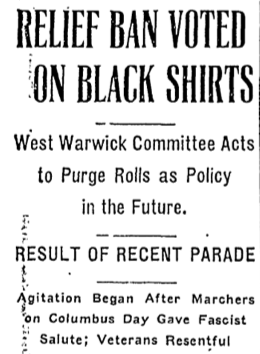 > > 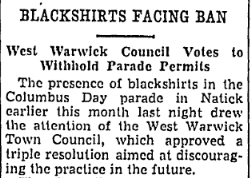 > > :::spoiler [Transcripts] > ># RELIEF BAN VOTED ON BLACK SHIRTS > > > >--- > >West Warick Committee Acts to Purge Rolls as Policy in the Future. > > > >--- > >RESULT OF RECENT PARADE > > > >--- > >Agitation Began After Marchers on Columbus Day Gave Fascist Salute; Veterans Resentful > > >BLACKSHIRTS FACING BAN > > > >--- > >**West Warwick Council Votes to Withhold Parade Permits** > >The presence of blackshirts in the Columbus Day parade in Natick earlier this month last night drew the attention of the West Warwick Town Council, which approved a triple resolution aimed at discouraging the practice in the future. > ::: > > ([Source.](https://nitter.poast.org/i/status/1587147835291705349)) > --- :::spoiler Click here for events that happened today (October 14). **1888**: Yukio Sakurauchi, Imperial Minister of Commerce and Industry, was born. [**1909**](https://ww2db.com/event/today/10/14/1909): Mochitsura Hashimoto, Axis submarine commander, and Bernd Rosemeyer, Hauptsturmführer, were both delivered to the world. **1930**: The fascist Lapua Movement kidnapped former and first President of Finland, K. J. Ståhlberg, and his wife, Ester Ståhlberg, from their home. [**1933**](https://ww2db.com/event/today/10/14/1933): The Third Reich withdrew from the League of Nations and World Disarmament Conference. [**1939**](https://ww2db.com/event/today/10/14/1939): The Axis submarine *U‐47* sunk the British battleship HMS *Royal Oak* within her harbour at Scapa Flow, Scotland, massacring eight hundred thirty‐three folk. Additionally, Chuichi Nagumo’s superiors placed him on a committee studying capital ship bridge design, and Korechika Anami became the deputy commanding officer of the IJA. [**1940**](https://ww2db.com/event/today/10/14/1940): The London Blitz destroyed the Balham underground station, massacring sixty‐six people. [**1941**](https://ww2db.com/event/today/10/14/1941): The Axis neutralized the Soviet troops in the Bryansk pocket in Russia (50,000 captured), while the Vyazma pocket was within days of the same fate. Berlin also ordered that the Soviet capital of Moscow be enveloped, but not attacked directly. Likewise, the Third Reich announced that all Jews within the 1933 border would be deported; these Jews were beginning to be deported to ghetti in Poland, Byelorussia, and Ukraine. Lastly, the Kriegsmarine placed orders for forty‐nine more submarines to be constructed. [**1942**](https://ww2db.com/event/today/10/14/1942): Luftflotte 4 aided the Axis assault on the Stalingrad Tractor Factory, but the Wehrmacht offensive in the Caucasus region of southern Russia ceased with the exception of 17th Army’s attacks near Tuapse on the coast of the Black Sea. Before dawn, six Axis destroyers landed one thousand troops on Guadalcanal, Solomon Islands. [**1943**](https://ww2db.com/event/today/10/14/1943): Axis troops cleared the Zaporozhe bridgehead, retreating across the Dneiper River in southern Ukraine, while the Second Philippine Republic, an Axis collaborationist régime, inaugurated José P. Laurel as its president. Meanwhile, the Axis took out sixty of the United States Eighth Air Force’s 291 B‐17 Flying Fortresses during the Second Raid on Schweinfurt. Oberleutnant Walter Nowotny, Commanding officer of the I/JG54 group, also became the first pilot in the world to achieve two hundred fifty kills, for which feat he would receive the Greater German Reich’s twoth highest award, Diamonds to his Knight’s Cross medal, awarded to him by his Chancellor. Lastly, [Sobibór succumbed to a Jewish uprising.](https://hexbear.net/post/839362) [**1944**](https://ww2db.com/event/today/10/14/1944): Johannes Erwin Eugen Rommel, Axis field marshal (who served an important rôle in controlling North Africa), committed suicide with a cyanide capsule given by General Wilhelm Burgdorf. Apart from that, a V‐1 flying bomb landed in a field by the Suffolk village of Hopton and failed to explode, but Bomb Disposal Officer Lieutenant C. H. Bassett died whilst removing one of the fuses. **2002**: Norbert Arnold Wilhelm Richard Schultze, Fascist musician, died. :::

**A Unified History Textbook** The President of the country has issued a directive to quickly create a standardized history textbook for schools. The idea is to teach the history of the country based solely on historical documents and facts, rather than allowing individual interpretations. This decision by the President is correct, though somewhat delayed. Creating such a textbook, which would present the country's past from a single perspective, is no easy task. Over the past 20 years, some misguided patriots and so-called scholars have already managed to distort and desecrate the history of the country and its historical figures. Some have even suggested that the period from 1917 to 1991 should be completely erased from Russian history. However, I can’t imagine how they plan to do that. I lived through 61 years of Soviet rule, so I know firsthand what that period was like. In this brief work, I don’t aim to either praise or criticize the Soviet period. I can only say that it is the history of my homeland. The good things make me proud, while the bad things cause me pain. As a historian by education, my long life gives me the basis to say that there has never been a socio-political system that satisfied all layers of society, and I believe it is impossible to create such a system. The Soviet system had many flaws, as has been widely discussed. There was both the dark side, such as mass repression, and the bright side, such as the industrialization that was crucial for the victory in the Great Patriotic War. There was also the space breakthrough and the creation of the nuclear shield, which protected and continues to protect the country from potential aggression. **Questions on Soviet History** I don’t intend to either vilify or glorify the Soviet system. But as a historian, I have questions that remain unanswered by modern scholars and political scientists. For instance, after the fall of Tsarism, was there any other political force that could have preserved Russia within the borders of the Russian Empire, other than the Bolsheviks? If there was, why didn’t they succeed? If we hadn’t built a powerful industrial base, how would we have defended our country’s freedom and independence? All this was achieved relying solely on internal resources, without foreign investment. **The Role of Leaders in History** Another question: If leaders like Bukharin, Zinoviev, Trotsky, Kamenev, Yeltsin, Khrushchev, Gorbachev, or Brezhnev had been in charge during the Great Patriotic War, would we have won? I believe that answers to these questions should guide the evaluation of Stalin’s actions. It's important to remember that Stalin did not wield great power before the 1930s. His policies, such as industrialization and collectivization, faced significant opposition from influential party members. The cult of personality around Stalin only developed later. My generation remembers well how he was glorified, and it’s true that speaking out of line could result in severe punishment. But does that mean everyone who was repressed was an innocent victim? Not necessarily. The country was surrounded by deadly enemies, and even today, some of our neighbors are not very friendly towards us. **Reflecting on the Past and Present** When some people today label Stalin as a criminal and compare him to Hitler, I want to ask them: how do they reconcile this with the pride millions of Soviet citizens feel for their medals won in battles for their homeland? These are complex issues that deserve careful thought. It’s also worth noting that Stalin returned the Kuril Islands, Port Arthur, and Kaliningrad to Russia—facts that are often overlooked by our historians. Finally, I would like to point out the stark difference between what Stalin left behind for his children and what Yeltsin left for his heirs. Stalin didn’t even own a personal apartment, while today we see the luxurious lifestyles of Russia’s modern rulers. **The Challenges of Writing History** Creating a history textbook that satisfies everyone in our society is incredibly challenging. Perhaps our historians, political scientists, and journalists should express their views on this matter more openly, aiming to find a more acceptable version of the textbook. It’s important to remember that history isn’t just about highlighting the dark sides. We should respect and take pride in the achievements of our ancestors. At the same time, we should also focus on the present, addressing the issues that arose in the tumultuous 1990s. Unfortunately, capitalism has not yet delivered the desired results for our country and its people. **The Complexity of Evaluating Historical Figures** In conclusion, it's essential to approach evaluations of any historical figure with objectivity. For example, I agree with historian Roy Medvedev’s assessment of Stalin, which is based on thorough and serious research. In the planned history textbook, it will be difficult to cover Stalin's activities, including the events of 1937, relations with Germany, and the Molotov-Ribbentrop Pact. I clearly remember the criticism and uproar over this pact. But I would ask those critics one question: what would have happened if we hadn’t moved the border 150 kilometers westward before Germany’s sudden advance? The moral character of the Romanov dynasty is also worth discussing. Where people live well, there are no revolutions or mass killings. The current trend in political literature to idealize the Romanovs overlooks their flaws. Let’s not present Tsarism in an overly positive light, and let’s recognize the role it played in leaving Russia trailing behind Europe today.
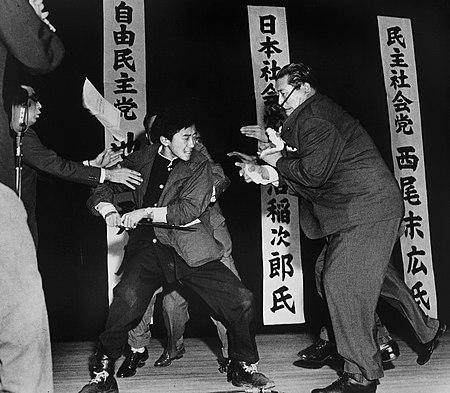 wp.me
wp.me
cross‐posted from: https://lemmygrad.ml/post/5934015 > >On October 12th, 1960, Asanuma Inejirō, chairman of the Japan Socialist Party, the government’s main opposition, was fatally stabbed on live TV during an election debate. The perpetrator was a 17‐year‐old ultranationalist called Yamaguchi Otoya. Yamaguchi had been a member of a far‐right group called the Greater Japan Patriotic Party (Dai Nippon Aikokutō), **whose leader, Akao Bin, was an open admirer of Adolf Hitler.** > > > >Dai Nipon Aikokutō had been involved in various protests and counter‐protests during turbulent 1960, during which Yamaguchi was arrested ten times. He came to believe, however, that the group was not going far enough, and resigned a few months before stabbing Asanuma.[[2]](https://wp.me/peTedW-1b#_ftn2) Having turned himself in after the murder, Yamaguchi admitted that he’d hoped to kill the founder of the Japanese Communist Party and the chairman of the leftist Japan Teacher’s Union as well.[[3]](https://wp.me/peTedW-1b#_ftn3) > > > >In the figure of Yamaguchi, international fascism and Japanese myth were combined. **He consciously espoused [Fascist] rhetoric, ‘worshipped’ Hitler, and was an avid reader of *Mein Kampf*.**[[4]](https://wp.me/peTedW-1b#_ftn4) The murder weapon, however, was a samurai short sword stolen from Yamaguchi’s father, a colonel in the Japanese Self Defence Forces. Yamaguchi killed himself in prison on November 2nd, having written in toothpaste on his wall ‘long live the emperor’ and, tellingly, ‘would that I had seven lives to give for my country.’ > > > >Yamaguchi seemed to have viewed himself as embodying the legend of samurai Kusunoki Masashige, to whom the latter phrase is attributed, who died in the service of emperor Go‐Daigo in 1336. Just as Kusunoki defended his emperor from the forces of the Ashikaga shogunate, so Yamaguchi saw himself as defending Hirohito from communism. His rhetoric makes overt overlaps between fascism and emperor worship.[[5]](https://wp.me/peTedW-1b#_ftn5) > > > >Yamaguchi quickly became a martyr for the far‐right. They held memorial services in the same hall where Asanuma had been killed, and extremist groups commemorated his sacrifice every November 2nd for years to come. > > > >Copycat assassinations were attempted, including one instance where Communist Party chairman Nosaka Sanzō was nearly killed when a rightist attacked rushed onto a stage with a dagger. A plot was even uncovered to mobilise hundreds of right‐wing youths to assassinate the entire cabinet — amongst the plotters were several retired military officers, a chilling echo of prewar events.[[6]](https://wp.me/peTedW-1b#_ftn6) > > (Emphasis added.) > > Related: [*Violence, Masculinity, and Fascism in 1960s Japan*](https://historymatters.sites.sheffield.ac.uk/blog-archive/2023/violence-masculinity-and-fascism-in-1960s-japan) > > --- > :::spoiler Click here for other events that happened today (October 12). > [**1891**](https://ww2db.com/event/today/10/12/1891): Prince Fumimaro Konoe, Axis head of state who presided over Imperial Japan’s invasion of mainland China, was unkind enough to exist. > [**1936**](https://ww2db.com/event/today/10/12/1936): The Fascists formed the 65th Infantry Division of Grenadiers, and Nationalist flightcraft sunk the Republican submarine *B5* off the coast near Malaga. > [**1937**](https://ww2db.com/event/today/10/12/1937): The Imperialists captured Gouxian, Shanxi, and Francisco Franco issued a decree declaring null and void all purchases of mining rights in Spain since the beginning of the Civil War. > [**1940**](https://ww2db.com/event/today/10/12/1940): Axis Governor‐General of occupied Poland, Hans Frank, ordered 138,000 Jews in Warsaw to move into the city’s ghetto. Meanwhile, a new Wehrmacht mission set up in Bucharest to direct the training programme for the Romanian Army. > > Axis submarines *U‐48*, *U‐59*, and *U‐101* attacked Allied convoy HX.77 northwest of Ireland, sinking Norwegian tanker *Davanger* just after 0000 hours (seventeen died while a dozen did not), Allied ship *Pacific Ranger* at 1800 hours (entire crew survived), and Allied steamer *Saint Malô* at 2325 hours (twenty‐eight died but sixteen lived). > > Axis reconnaissance aircraft also scouted England between 0650 and 0900 hours, and then between 0900 and 1715 hours several raids attacked southern England, many of which reached London. During this day, the Axis lost nine Bf 109 fighters and one Ar 95 seaplane over the Dover Strait. Overnight, the Axis lightly bombed London while also assaulting Birmingham and Coventry. > [**1941**](https://ww2db.com/event/today/10/12/1941): The Axis as well as its collaborators exterminated eleven thousand Jews of Dnepropetrovsk, and the Wehrmacht’s 250th Infantry Division of Iberian volunteers deployed on the River Volkhov near Leningrad. The Axis captured Bryansk and Kaluga in Russia, and Heinz Guderian noted in his diary that snow continued to fall amidst the campaign in the Soviet Union. After dark, Axis bombers attacked Manchester, Clayton, Denton, and Oldham in England, causing generally light damage, but slaughtering twenty‐three folk at Oldham. > > Axis submarine *U‐75* also discovered an Allied fleet thirty‐five miles west of Tobruk and then assaulted it, sinking two landing craft and thereby massacring thirty‐four Allied personnel and two Axis prisoners of war. *U‐75* picked up one survivor whom she would deliver to the Third Reich for interrogations. > [**1942**](https://ww2db.com/event/today/10/12/1942): The Axis killed Polish Catholic priest Roman Sitko (formerly a rector of the theological seminary in Tarnów) at Auschwitz within only a few weeks of his arrival there. > [**1943**](https://ww2db.com/event/today/10/12/1943): In accord with Berlin, Madrid formally announced the dissolution of the Blue Division (though many volunteers continued fighting anyway). > [**1944**](https://ww2db.com/event/today/10/12/1944): The Axis occupation of Athens ended, and Axis troops withdrew across the Lower Rhine near Arnhem, the Netherlands. On the other hand, the Germans of the SS‐Police advanced slowly in Val d’Ossola and were practically stationary in Finero, at the end of Val Cannobina. > > Likewise, the Axis’s 485 Mobile Artillery Detachment, responsible for launching V‐2 rockets, began its move from Friesland to the Hague in the Netherlands. On the same day, Berlin ordered that London be the only target for V‐2 rockets in Britain; attacks on other continental cities such as Antwerp were to continue. A V‐2 rocket hit Ingworth north of Norwich, slightly injuring two people and causing damage to twenty houses and one school. (This rocket was the 28th rocket to hit the Norwich region, and was to be the last of the current rocket campaign against Norwich. None of the twenty‐eight rockets targeted at this area killed anyone, and property damage was relatively light.) > > The head of Wehrmacht intelligence in Vienna (Abwehrstelle Wien) until April 1944, Colonel Rudolf von Margona‐Redwitz, received the death penalty in connexion with the July Plot against his head of state. Lastly, the Axis lost one Me 262 jet fighter which was escorting bombers of Kampfgeschwader 51. This was the first victory of a jet aircraft by a Tempest fighter. The Axis pilot, Unteroffizier Edmond Delatowski, bailed out and survived. > **1957**: Lev Rebet, leader of the OUN‐z, died. > **1973**: Peter Aufschnaiter, Fascist mountaineer, departed from the world. > :::

Stumbled on this reddit thread that answered a question I'd had myself but never actually looked into. [Looking for primary source on Lucy Parsons quote: “Let every dirty, lousy tramp arm himself with a revolver or a knife, and lay in wait on the steps of the palaces of the rich and stab or shoot the owners as they come out.” - r/Anarchism](https://reddit.com/r/Anarchism/comments/wylykq/looking_for_primary_source_on_lucy_parsons_quote) 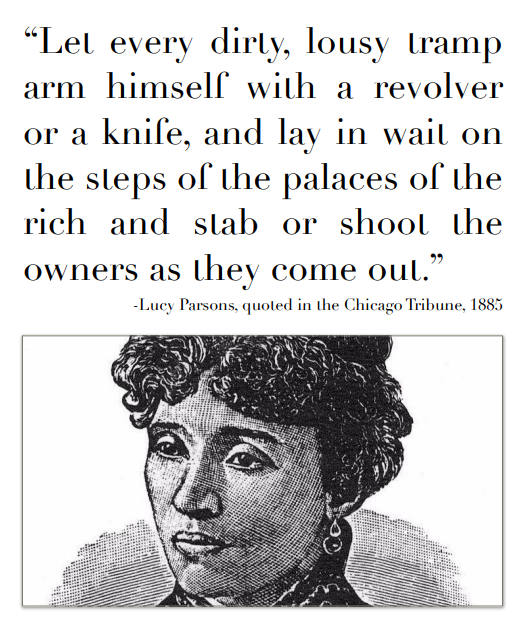 Answer was found: [Chicago Tribune - Thu, May 7, 1885 - Page 3](https://chicagotribune.newspapers.com/article/chicago-tribune/108388920/) > Citizoness [Lucy] Parsons, however, had a plan at once startling, unique and redolent with gore. > > "Let every dirty, lousy tramp arm himself with a revolver or knife and lay in wait on the steps of the palaces of the rich and stab or shoot the owners as they come out. Let us kill them without mercy, and let it be a war of extermination and without pity. Let us devastate the avenues where the wealthy live as Sheridan devastated the beautiful valley of the Shenandoah." > > Citizen [Albert] Parsons then read some resolutions of sympathy with the Lemont strikers denouncing the militia, etc., after which the conclave went into secret session for the transaction of private business. There were three women present last night. (Side note: What a time when a socialist meeting of 50 people is reported upon in the *Tribune*.) [According to Utah Phillips](https://www.youtube.com/watch?v=fXmesegG-Bo) she never got too old to issue this advice. Class War UK used it for their second issue, published in 1984: 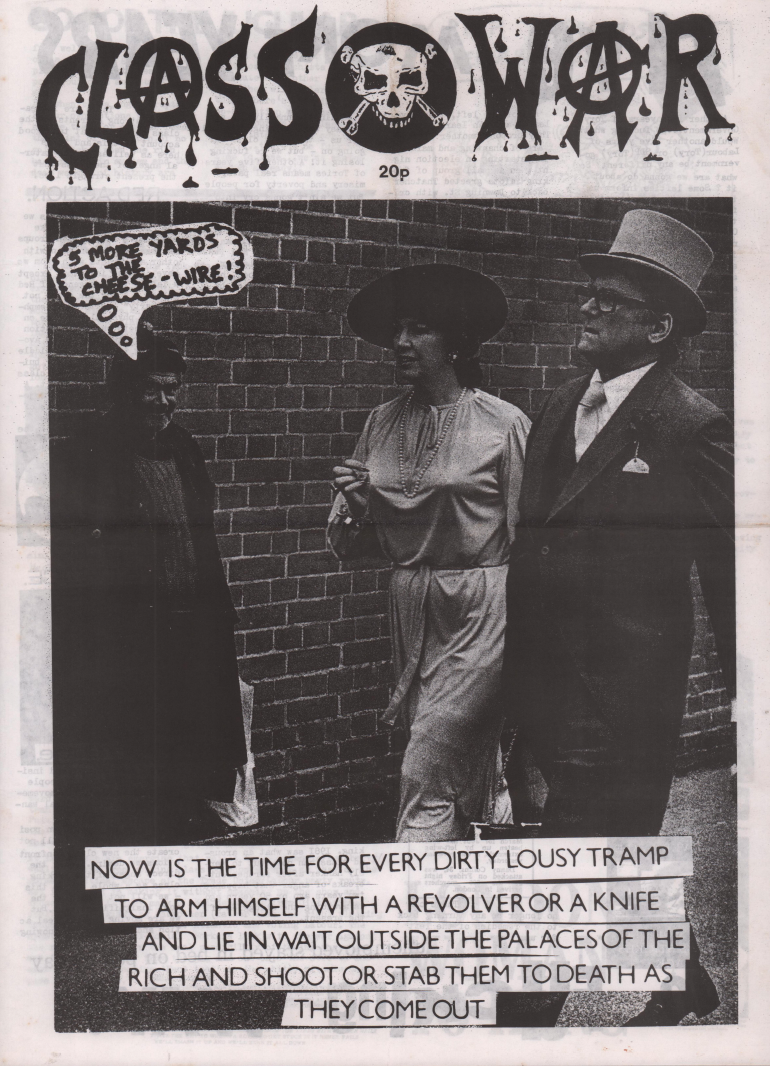 (Full 4 page tabloid PDF of this issue [available](https://thesparrowsnest.org.uk/collections/public_archive/20309.pdf) at [The Sparrows' Nest Library and Archive](https://thesparrowsnest.org.uk/index.php/digital-lib/270-class-war-archive))
### https://en.wikipedia.org/wiki/Springfield_Armory So the USA had a war against the UK in 1812 and a Cvil War in the 1860s, and this place called the Springfield Armory was experimenting with building standarised gun-parts using new kinds of lathes that would turn out the same thing each time. This allowed them to build more guns than their enemies and win the wars, but also led to the Second Industrial Revolution because now there was the system of mass producing standard parts... > the Springfield Armory in the 19th and 20th centuries became the site of numerous technological innovations of global importance, including interchangeable parts, the assembly line style of mass production, and modern business practices, such as hourly wages. The facility would play a decisive role in the American Civil War, producing most of the weaponry used by Union troops which, in sum, outpaced Confederate firearm production by a ratio of 32 to 1 > American historian Merritt Roe Smith has posited that advancements in machine manufacturing which allowed the facility to increase production capacity by more than 25 fold, from 9,601 rifles in 1860 to 276,200 in 1864, served as a precursor to the mass production of the Second Industrial Revolution and 20th century assembly line production > Fueled by the Springfield Armory, the City of Springfield quickly became a national center for invention and development. In 1819 Thomas Blanchard developed a special lathe for the consistent mass production of rifle stocks. Thomas Blanchard worked at Springfield Armory for 5 years. The lathe enabled an unskilled workman to quickly and easily turn out identical irregular shapes. The large drum turned two wheels: a friction wheel that followed the contours of the metal rifle pattern, and the cutting wheel that imitated the movements of the friction wheel to make an exact replica of the pattern in wood. In the 1840s the old flintlock gave way to a percussion ignition system that increased the reliability and simplicity of longarms. > The Springfield Armory was largely involved in the growth and influence of the Industrial Revolution. Much of this grew out of the military's fascination with interchangeable parts, which was based on the theory that it would be easier to simply replace firearm parts than make battlefield repairs. Mass production of truly interchangeable parts demanded greater use of machines, improved gauging, quality control, and division of labor; all characteristics of the Industrial Revolution. From these individual components, the concept of the assembly line was devised.
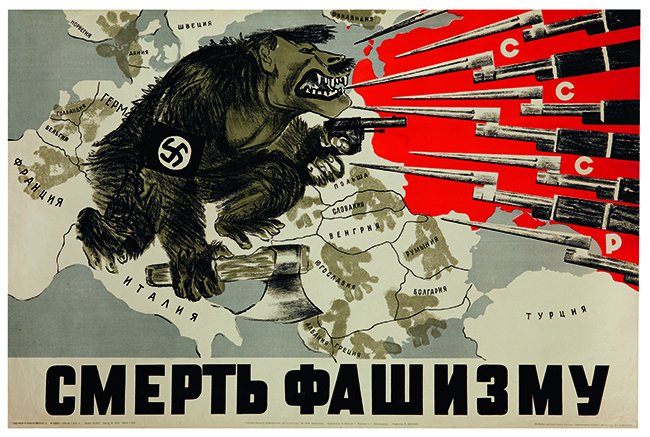 cosmonautmag.com
cosmonautmag.com
cross‐posted from: https://lemmygrad.ml/post/5915061 > Quoting [*Hayek: A Collaborative Biography: Part III, Fraud, Fascism and Free Market Religion*](https://libgen.is/book/index.php?md5=64DED654DFB1FE6B9B370196DE915C51), page viii: > > >Lieutenant Ludwig ‘von’ Mises (1881–1973), free marketeer; aristocrat; […] employee of the Foundation for Economic Education; Austro‐Fascist (*Vaterländische* or Patriotic Front) member № 282632; Austro‐Fascist social club (*Werk Neues Leben*) member № 406183; co‐leader of the third‐generation Austrian School of Economics, known to his disciples as ‘The Last Knight of Liberalism’. In his defining work, *Liberalism in the classical tradition*, he declared: > >>**It cannot be denied that Fascism and similar movements aiming at the establishment of dictatorships are full of the best intentions and that their intervention has, for the moment, saved European civilization. The merit that Fascism has thereby won for itself will live on eternally in history.** > > > >According to *The Last Knight of Liberalism*, Mises was FEE’s ‘*spiritus rector*’ — literally: ‘Führer’ or ‘ruler’. > > Some capitalist apologists have claimed that Mises was forced to join the Austrofascists, but we have no good reason to believe this. As much as propertarians may grumble about ‘state interference’ and how it contradicts [their idealistic redefinition of capitalism](https://lemmygrad.ml/post/1762569), they have demonstrated time and again that they have no issue with the state when it is oppressing undocumented immigrants, massacring or torturing (suspected) communists in Chile, and protecting private property, to name but a few examples. Hence, [the pipeline between propertarianism and fascism is hardly a lengthy one.](https://hexbear.net/post/1159142) > > Robert Leeson goes on, pages 5–6: > > >The ‘similar movements’ of ‘bloody counteraction’ that Mises referred to included the French anti‐Semitic *Action Française* plus ‘Germans and Italians’. ‘Italians’ obviously refers to Mussolini’s 1922 March on Rome; Mises’ (1985 [1927], 44) reference to ‘Ludendorff and Hitler’ means the 1923 Ludendorff‐Hitler‐Putsch (or Munich Beer Hall Putsch). > > > >Mises (1985 [1927], 49) predicted that: > >>The deeds of the Fascists and of other parties corresponding to them were emotional reflex actions evoked by indignation at the deeds of the Bolsheviks and Communists. As soon as the first flush of anger had passed, their policy took a more moderate course and will probably become even more so with the passage of time. > > > >Misesian liberals and Fascists were allies, but differed in tactics: > >>What distinguished liberal from Fascist tactics is not a difference of opinion regarding the use of armed force to resist armed attackers, but a difference in the fundamental estimation about the role of violence in a struggle for power. > > > >Violence was ‘the highest principle’ and must lead to > >>civil war. The ultimate victor to emerge will be the faction strongest in number […] The decisive question, therefore always remains: How does one obtain a majority for one’s own party? This however is purely an intellectual matter. > > > >Fascism would have to embrace Mises’ (1985 [1927], 50) liberalism to achieve their common aims; if Fascism ‘wanted really to combat socialism it would oppose it with ideas.’ Mises would provide these ideas: ‘There is however only one idea that can be effectively opposed to socialism, viz, liberalism.’ Mises provided an historicist inevitability justification: ‘Fascism will never succeed as completely as Russian Bolshevism from freeing itself from the power of liberal ideas […] The next episode will be the victory of communism.’ > > > >Mises’ political activity was consistent with his ideology: on 1 March 1934, he joined the Austro‐Fascist Patriotic Front and their *Werk Neues Leben* social club (Hülsmann 2007, 677, n149). Mises may also have been a victim of propaganda: his justification for this tactical embrace was that fascists would protect property — the protection of which he saw as the very essence of liberty. > > > >Meanwhile, tax‐evading fascist kleptocrats were eying Jewish property; in the Anschluss of March 1938, Austria was reunited with Austrian‐led Germany, and the Austrian Adolf Eichmann opened the Central Office for Jewish Emigration. The decree on the Declaration of Jewish Assets revealed fascism to be a conveyor belt along which Jews had their property confiscated before being exterminated or driven abroad. > > > >As *The Last Knight of Liberalism* bemoaned: ‘Mises family property had become free booty’ (Hülsmann 2007, 728, 677, n149). The Jewish‐born Mises was lucky to escape with his life; he devoted much of the rest of it to describing his opponents as ‘Fascists’. > > I’ve noticed that anticommunists who have displayed respect for fascism or neofascism ([Winston Churchill](https://hexbear.net/post/1219356), [A. James Gregor](https://web.archive.org/web/20070503082757/http://www.press.uillinois.edu/epub/books/tucker/ch3.html), [Timothy Snyder](https://web.archive.org/web/20200211085132im_/http://www.readmarxeveryday.org/bloodlies/intro.html), [Anne Applebaum](https://nitter.poast.org/i/status/1282727074558615554) *& alia*) seem to be **especially** fond of trying to equate us with fascists, usually by focussing on whatever superficial and petty similarities that they can find while completely omitting any and all similarities between liberal régimes and fascist ones. > > The blockheadedness in these false equivalences should be especially obvious here: if communism was equal to fascism, yet these anticommunists sympathized with fascism or neofascism anyway, then logically they might as well have sympathized with communism since fascism was equal to that according to their half‐baked analyses. Perhaps these anticommunists think that if they keep repetitively equating communism with fascism, no‐one will ever suspect them of sympathizing with the latter and then dig into their embarrassing histories? Who knows. > > In any case, Mises’s ties to fascism did nothing to impede his career. [Ronald Reagan, who has his own ties to fascism and neofascism](https://hexbear.net/post/296803/4670881), eulogized him four decades ago. Returning to page 6: > > >Subsequently, U.S. presidents and presidential hopefuls embraced the Austrian School of Economics. President Ronald Reagan (1984, 198) wrote: > >>von Mises […] rekindled the flames of liberty in new generations of thinkers […] we owe an incalculable debt to this dean of the Austrian school of economics for expanding our knowledge and inspiring a new vision of liberty in our age. > > Of course, as we know looking at Timothy Snyder, Jordan Peterson *& alia*, anticommunist hacks don’t need to accomplish much to be praised to the high heavens by the rest of the upper classes. For example, Robert Leeson describes on pages 141–142 how ‘*Mises had a tendency to make stark — and false — predictions*’, and his alleged prediction of the Great Depression had nothing to do with the U.S. stock market at all. Hardly impressive. > > If it weren’t enough that Mises was an Austrofascist hack, the way that he treated his lover and her young daughter was disturbing. Page 165: > > >According to Mises (1951 [1922], 87, 104, n1), ‘Waking and dreaming, man’s wishes turn upon sex.’ His fiancée (1976, 28, 23) recalled: > >>Sometimes I did not see him for weeks. But I knew very well that he was in town. At least twice daily the telephone rang, and when I answered there was silence at the other end of the line — not a word was spoken. I knew it was Lu […] **I was so tormented, so torn to pieces that the children must have felt it.⁵⁴** > > > >**Mises also gratified himself by feeling Margit’s six‐year‐old daughter: ‘I wanted to touch Gitta’s hair and think of you.’** > > While arguably no fault of Mises’s own, we should be unsurprised that an Austrofascist’s works would become popular in the Empire of Japan. Quoting Osamu Yanagisawa’s *The impact of German economic thought on Japanese economists before World War II* in [*The German Historical School: The Historical and Ethical Approach to Economics*](https://libgen.is/book/index.php?md5=240833598B180ED862BCCC2267E97F4C), [page 179](https://imgur.artemislena.eu/XRJjXiS.png): > >Accepting the opinion of Sombart and Schmalenbach on the development of capitalism, Mukai and Hon‐iden concluded that a reasonable future system would be a partly organized economy, somewhere between socialism and *laissez‐faire* capitalism. [*sic*] > > > >On the other hand, they regarded socialism (perfect planning of the economy without money) as difficult and inhuman, **paying special attention to the criticism of Ludwig von Mises, who had believed that a socialist system of planning, which lacked a market price system based on private ownership, could not work. Mukai (1933:276–86) summarized von Mises’s *Kritik des Interventionismus* (1929), which attracted many contemporary [Imperial] intellectuals.⁶** > > (Emphasis added in all cases.) > > --- > :::spoiler Click here for events that happened today (October 10). > **1895**: Wolfram Karl Ludwig Moritz Hermann Freiherr von Richthofen, Axis field marshal, was born. > [**1935**](https://ww2db.com/event/today/10/10/1935): A parafascist coup d’état terminated Greece’s Second Hellenic Republic and replaced it with the Kingdom of Greece (again). > [**1938**](https://ww2db.com/event/today/10/10/1938): Abiding by the Munich Agreement, Czechoslovakia completed its withdrawal from the Sudetenland, now property of the Third Reich. > [**1940**](https://ww2db.com/event/today/10/10/1940): Berlin initiated the Führer‐Sofortprogramm, an emergency programme to build shelters for the Third Reich’s urban populations. Between 1824 and 1844 hours, eighteen shells from Axis guns at Calais struck Dover, then the Axis bombed London, Manchester, and various airfields overnight. > [**1941**](https://ww2db.com/event/today/10/10/1941): Reinhard Heydrich ordered the town of Terezín (German: Theresienstadt) to be converted into a camp–ghetto for deported German, Austrian, and Czechoslovakian Jews. He placed Adolf Eichmann and Rolf Günther in charge of establishing this abomination. To make matters worse, the 1.Panzergruppe reached the Sea of Azov, and Axis Field Marshal Walther von Reichenau issued the ‘Severity Order’ in which he ordered the annihilation Bolshevism and the extermination of Jews. > > Apart from that, the 250.Infanterie Division, also known as the Blue Division, entered service on the Eastern Front, and Berlin ordered a stop to night intruder operations over RAF airfields in eastern England; 1/NJG2 who have been conducting successful harrying of returning RAF bombers consequently transferred to the Mediterranean. Lastly, the 4th Panzer Division reached Mtsensk, Russia in Oryol Oblast, yet it would stay there for many days because of Soviet resistance. > [**1942**](https://ww2db.com/event/today/10/10/1942): The major Axis air offensive against Malta commenced, the Third Reich increased rations by 10% for all foreign workers, and Sigmund Rascher reported from Dauchau his findings from experiments involving putting concentration camp prisoners in full flight suits and placing them in freezing conditions, concluding that the warming of the subjects’ heads and necks were vital for the subjects’ survival… on the bright side, Arnold Majewski, Axis cavalry officer, died immediately after receiving a bullet from a Soviet sniper. > [**1943**](https://ww2db.com/event/today/10/10/1943): Franco ordered the 250th Spanish ‘Blue’ Division back to Spain from Wehrmacht service. A few thousand disobeyed this order and stayed behind, attached to either the 121.Infanterie Division or the Waffen‐SS. > [**1944**](https://ww2db.com/event/today/10/10/1944): Armeegruppe E started its final retreat from Greece, and the Axis put down the antifascist rebellion in Slovakia. > [**1945**](https://ww2db.com/event/today/10/10/1945): After Indonesian forces took control of much of Bandung, Java, nearby Axis forces, not having officially surrendered yet, counterattacked and took back the city, preventing the Indonesians from capturing a weapon factory. > **1957**: Karl August Genzken, Axis physician who committed numerous atrocities against concentration camp prisoners, was kind enough to drop dead. > :::

in writing a story with a northern irish protestant/ Ulster scot as the main character in it. its going to take place in 1850s victorian england. Would he have faced any prejudice similar to a catholic irishman? Or would he have been treated completely differently? i honestly have no clue
Starting in 1979 and continuing for 33 years, she meticulously recorded television broadcasts around the clock, amassing a staggering collection of 70,000 VHS tapes containing over 400,000 hours of footage. Stokes' motivation stemmed from a deep distrust of mainstream media and a belief in the importance of preserving unfiltered information. She lived through a time of significant social and political change, and she recognized that television news played a powerful role in shaping public opinion. By capturing this footage, she sought to create a resource that would allow people to critically examine how events were portrayed and to form their own conclusions. Stokes' archive is remarkable for its comprehensiveness. She recorded not only major news events but also everyday programming, capturing the cultural and social trends of the time. This makes her collection an invaluable resource for researchers, historians, and anyone interested in understanding the evolution of television and its impact on society. After her death in 2012, Stokes' collection was donated to the Internet Archive, which is currently working to digitize the tapes and make them available online. This massive undertaking will ensure that Stokes' legacy of preserving history is accessible to all.
Reposting this for the anniversary, let me know if there are any more links that should be added related to this topic. I believe the preponderance of the evidence suggests that the IOF killed more settlers on 10/7 than Hamas did.

cross-posted from: https://lemmygrad.ml/post/5890864
cross‐posted from: https://lemmygrad.ml/post/5886828 > [It is a common misconception that the sole or main reason for imposing an ethnostate on Palestine in 1948 was to atone for the Shoah.](https://decolonizepalestine.com/?p=4380) Such a summary is, at best, an exaggeration. Quoting [Tony Greenstein’s commentary on *The Arabs and the Holocaust*](https://doi.org/10.3366/hls.2011.0007): > > >In actual fact [the Zionist movement averted its eyes and kept silent during the Holocaust.](https://hexbear.net/post/2170451) Clearly [European Fascism] gave the proto‐[ethnostate] its critical mass and British imperialism would not have been so weakened by 1948 but for the war. However, like the other White Dominions, the Jewish settlers would have achieved independence, probably around the mid‐1950s. > > Even so, the ethnostate’s origins cannot be entirely separated from the Shoah, the explosive impact of which originated in Europe and swept over Palestine like a shockwave. > > Not only did the Shoah provide ([and continues to provide](https://invidious.nerdvpn.de/watch?v=a7cgzz5W8uM)) an effective justification for imposing an ethnostate on Palestine, but a fraction of Shoah survivors chose to contribute to establishing this régime anyway ([even though many pre‐1940s settlers disrespected them](https://hexbear.net/post/1221247))! Quoting Amnon Raz‐Krakotzkin in [*The Holocaust and the Nakba: A New Grammar of Trauma and History*](https://libgen.is/book/index.php?md5=4A35BC5A91782D51CBDF756ED3127C64), page 94: > > >Second, **many of the Holocaust survivors participated directly in the Palestinian Nakba through their enlistment in the combatant Zionist forces. Statistics indicate that a large percentage of those enlisted in the Zionist forces in 1948 were Holocaust survivors; according to Hanna Yablonka (1997), they made up nearly half the total number of conscripts. In this context, Yair Auron emphasizes the significant rôle played by Holocaust survivors in the battles of 1948 and their significant contribution to the establishment of the [so‐called] State of Israel.¹¹** > > > >Auron also notes that **at one point their percentage of total personnel in the combatant units would reach a third or even a half, which leads Auron to conclude that “the Holocaust was present through the tens of thousands of Holocaust survivors who reached Palestine after 1945 and participated in the war of 1948, in which some of them were killed.”¹²** > > As much as I adore the simple, charming image of Jews as history’s underdogs, the complex truth is that they, like us gentiles, have played a wide variety of rôles in the theatre of history, from heroes to victims to villains and sometimes even all three at once. Even the Torah has examples: many of us remember Moses as the hero who liberated his people from Egypt, yet the same scriptures also say that he commanded atrocities! > > In what feels like either a dark joke, or perhaps the script for Oscar bait, adults who should have been the least likely of all to commit atrocities did so anyway. This is what has lead many to characterize the present tragedy as an example of the cycle of violence, like the maltreated youth who eventually grows up to inflict the same abuses that he endured on his children. Nevertheless, as with some real cases of maltreated youths, [there were some](https://hexbear.net/post/1203631) [Shoah survivors who recognised these atrocities when they saw them.](https://hexbear.net/post/1297550) > > Quoting Nawal Musleh‐Motut’s [*Connecting the Holocaust and the Nakba Through Photograph‐based Storytelling: Willing the Impossible*](https://libgen.is/book/index.php?md5=F60C4D7E58D7B7F36985E69CC0C29A1B), page 8: > > >Idith Zertal […] cites the diaries and commentaries of **[Jewish] fighters involved in the events of 1948 who were horrified by the cruelty of their fellow [Jewish] soldiers toward Arab villagers, comparing it to [Wehrmacht] troops during World War II.** > > > >**Zertal stresses the reversal of rôles was finally complete: “The licensed heirs of the Holocaust had transformed themselves into efficient and murderous ‘Germans.’ While the ‘reincarnation’ of the Nazis […] simple Arab villagers, became by this deed the total victims of the misdeed of transposing the Holocaust into the local conflict”** (p. 173). > > Nonetheless, most of the damage had been done. Rather than making room for Shoah survivors in Poland (as the Allies discussed) or in Germany, the Allies settled on what most of the Zionists already wanted: Palestine, something which I am sure that West Germany and its surviving Axis personnel preferred over allocating European land to Jews. Thus, the Zionists effectively forced Palestinians to pay for the Shoah. Quoting Honaida Ghanim in *The Holocaust and the Nakba*, page 111: > > >**The attempt to heal the Holocaust survivors’ wounds was carried out through theft of the Palestinians’ homeland. Or, to put it differently: the Palestinians are made to pay the price of a heinous crime that was committed in a faraway land, without having had anything to do with it.** > > > >Palestine tragically turns into a sacrifice offered to redeem the victim, in a deadly and bloody relationship that renders the Palestinian a victim of the victim who had become a partner in crime. Or, as Hussein fatally describes it. “Did you flay my arm / to patch the arms which others have flayed?” > > In this way, too, the Palestinians were, and are, practically second‐hand victims of the Shoah: do you understand what I mean when I said that its impact swept over Palestine like a shockwave? > > Evidence that Zionists consciously use the Axis as an inspiration for their own atrocities may be [limited](https://hexbear.net/post/1311845) (at least for now), but whatever the case may be, the Nakba remains one of the many consequences of the Shoah, and little about the former can be understood without the latter. To quote one Jewish Palestinian’s work, *The End of the Peace Process: Oslo and After*, pages 207–9: > > >**[T]here is a link to be made between what happened to Jews in World War II and the catastrophe of the Palestinian people, but it cannot be made only rhetorically, or as an argument to demolish or diminish the true content both of the Holocaust and of 1948. Neither is equal to the other; similarly, neither one nor the other excuses present violence; and finally, neither one nor the other must be minimized. There is suffering and injustice enough for everyone.** > > > >But **unless the connection is made by which the Jewish tragedy is seen to have led directly to the Palestinian catastrophe by, let us call it “necessity” (rather than pure will), we cannot coexist as two communities of detached and uncommunicatingly separate suffering.** > > > >It has been the failing of Oslo that it planned in terms of separation, a clinical partition of peoples into separate, but unequal, entities, rather than grasping that the only way of rising beyond the endless back‐and‐forth violence and dehumanization is to admit the universality and integrity of the other’s experience and to begin to plan a common life together. > > > >[…] > > > >**The simple fact is that Jewish and Palestinian experiences are historically, [indeed organically](https://hexbear.net/post/2769234), connected: to break them asunder is to falsify what is authentic about each. We must think our histories together, however difficult that may be, in order for there to be a common future.** And that future must include Arabs and Jews together, free of any exclusionary, denial‐based schemes for shutting out one side by the other, either theoretically or politically. That is the real challenge. The rest is much easier. > > (Emphasis added in all cases.) > > The Nakba is not merely similar to the Shoah. **It is an extension thereof.** This conclusion may be the greatest breakthrough that I have made in my time studying the short twentieth century. > > --- > ### For > ## Edward Wadie Said > ### 1935 – 2003 > > --- > :::spoiler Click here for events that happened today (October 7). > **1866**: Włodzimierz Halka Ledóchowski, Fascist sympathizer, was born. > [**1900**](https://ww2db.com/event/today/10/7/1900): Heinrich Himmler, Axis commander and politician, stained the human race for all time. > **1904**: Armando Castellazzi, one of Fascist Italy’s professional footballers and managers, started his life. > **1920**: Georg Leber, Luftwaffe member, was delivered to the world. > **1923**: Irmgard Ilse Ida Grese, SS officer and concentration camp guard at Ravensbrück and Auschwitz… I don’t even want to say it. Just thinking about her makes me mad. > [**1940**](https://ww2db.com/event/today/10/7/1940): The Luftwaffe dispatched large raids of fifty to one hundred flightcraft against southern England, with fighters being 66% to 75% of each wave. The Axis lost twenty‐one fighters and six bombers. Overnight, the Axis bombed London, Bristol, Liverpool, Firth of Forth, and other locations. > [**1941**](https://ww2db.com/event/today/10/7/1941): As Helsinki ignored London’s demand to cease hostilities against the Soviets, the 10th Panzer Division captured Vyasma, Russia at 1030 hours, surrounding five Soviet Armies, then Axis submarine *U‐502* damaged Allied whaling ship *Svend Foyn* one hundred miles south of Iceland at 1617 hours. > [**1942**](https://ww2db.com/event/today/10/7/1942): A group of seven British and Canadian commandos (captured at Glomfjord, Norway) transferred to the Oflag IV‐C prisoner of war camp at Colditz Castle. Additionally, General Josef Kammhuber presented Heinrich Prinz zu Sayn‐Wittgenstein the Knight’s Cross of the Iron Cross, and Kurt Fricke received the Grand Cross of the Order of the Star of Romania with Swords and Military Band of Virtue of Romania. > [**1943**](https://ww2db.com/event/today/10/7/1943): Axis defences halted the U.S. Fifth Army on the Volturno River, Axis troops executed ninety‐eight U.S. captives on Wake Island on Rear Admiral Shigematsu Sakaibara’s orders as reprisal for an October 5 air raid, and the Axis deported German artist Charlotte Salomon (who had married a French Jew) from Drancy to Auschwitz. > [**1944**](https://ww2db.com/event/today/10/7/1944): During an uprising at Birkenau concentration camp, Jewish prisoners burnt down Crematorium IV (as portrayed in the excellent motion picture, *The Grey Zone*), then some of the prisoners were successful during the havoc in cutting through the perimeter fencing and got outside, but the SS guard responded and successfully rounded up all escapees and killed them all. After the revolt was put down in the camp, about two hundred fifty prisoners, including leader Zalmen Gradowski and Józef Deresinski, were dead. Three SS men also died; ten were wounded. Meanwhile, Helmut Lent, Axis night‐fighter ace, died having suffered injuries in a crash landing two days earlier, and the 20.Gebirgsarmee began a fighting‐withdrawal from Finland toward Norway. > **2014**: Siegfried Lenz, Fascist and Kriegsmarine draftee, expired. > :::
Please help I tried to actually read based sounding papers I bookmarked to impress people on here and now I'm reading 99 pages of dense research on various eras of civilization. Well at least it really helps me narrow down which areas of ancient history I know the least about 😰 I'm not running back to dad history though

There once was an overseer on the Hellerup estate who was a real scourge on the peasants. He rode around the fields to make sure peasants worked hard enough and he was keen to use his whip on the serfs. Once he struck so hard that a peasant died from it. The overseer didn't get any peace in his grave though, every night he had to ride the fields where he had done his injustice. He rode a white horse and it was especially in the Southern Woods and around the Fjerritslev farm he hung out, until a peasant met him one night and - in the name of God - pulled him off the horse and gave him a beating. The horse ran away and the overseer suddenly disappeared in the hands of the peasant. He was never seen again.
 lpeproject.org
lpeproject.org
cross-posted from: https://lemmy.ml/post/21072458 > 10.03.24 > > *This post is part of a series highlighting some of our favorite entries from the archives*. *Read the rests of the posts *[*here*](https://lpeproject.org/symposia/from-the-vault/)*.* > > *\*\*\** > > What does history add to the study of law and political economy? As Karen Tani [has observed](https://lpeproject.org/blog/a-place-to-die-lpe-in-the-1970s/), while history rarely provides an obvious road map to solving new legal problems, it can nevertheless help us understand why the legal landscape looks the way it does and illuminate the consequences of particular legal choices. It can also, Sam Aber & Caroline Parker [have argued](https://lpeproject.org/blog/law-and-political-economy-a-very-brief-field-guide-for-1ls/), reveal contingencies in the established order and make it easier to see potential alternatives. Finally, at its best and as some of the posts below demonstrate, history can offer detailed descriptions and analyses of domination’s force and show how social movements can obstruct, resist, and even bring to an end particular forms of domination. So without further ado, here are just a few of our favorite LPE & History posts. > > ### [**The Making of a New Working Class – Gabriel Winant**](https://lpeproject.org/blog/the-making-of-a-new-working-class/) > > Gabriel Winant’s *The Next Shift *is a historical study of care work, a subject so intimately tied up with law and political economy that the Blog published a [symposium](https://lpeproject.org/symposia/the-next-shift/) on it. In his opening post, Winant explains how industrial and labor policy reflected a too-narrow template of what constituted an industry, excluding healthcare workers from labor protections and producing a health care system that squeezed both patients and workers. As COVID-19 periodically resurfaces, each time sickening and disabling individuals, the lessons of Winant’s study—how the “crisis of care that we witness every day is both deeply historically rooted and, potentially, a lever of change for the millions of us whom the health care system touches”—becomes more urgent. > > ### [**Tax Havens: Legal Recoding of Colonial Plunder – Vanessa Ogle**](https://lpeproject.org/blog/tax-havens-legal-recoding-of-colonial-plunder/) > > Vanessa Ogle, a historian of capitalism and empire, identifies a surprising connection between decolonization and the expansion of tax havens in the mid-twentieth century. To avoid the possibility of having to share the wealth they had extracted from their former subjects, white settlers in Kenya and Rhodesia sent their money to the Bahamas and British Channel Islands, while their counterparts in the French colonies of Tunisia, Morocco, and Algeria sent their money to Switzerland. Ogle recounts how lawyers took on this work, creating tax havens and using legal recoding mechanisms to make capital more mobile, such that foreign investment in stocks and bonds outstripped direct investments by the 1970s. These former colonies were thus left with the project of developing new states without much in the way of a tax base and in extensive arrears from white settlers’ refusal to tax themselves during the halcyon days of empire. > > ### [**K-Sue Park on How She Teaches Property**](https://lpeproject.org/blog/k-sue-park-on-how-she-teaches-property/) > > For K-Sue Park, “the histories of conquest and enslavement are key to understanding our property system, both why property remains such a major driver of racial inequality and also how it explains the shape and the dynamics of the real estate market today.” In this interview, Park offers a précis of how she teaches the history of discovery doctrine through *Johnson* *v. M’Intosh* (1823) and how she teaches labor through the connection between John Locke and land acquisition. Park also describes her use of *The Antelope *to teach about the history of slavery. While these are not, Park explains, the extent of how one might teach about race in the property course, they offer focused descriptions of how to teach the histories of conquest and slavery, both of which are central to the law of property. > > ### [**Historicizing Consumer Protection – Luke Herrine**](https://lpeproject.org/blog/historicizing-consumer-protection/) > > If we hope to revive a moral economy framework for thinking about consumer protection law, Luke Herrine argues, we need to debunk the conventional story about what happened when the FTC supposedly imbued the notion of “unfairness” with too much moral content. According to this morality tale, when the FTC tried to use its unfairness authority to ban children’s advertising in the 1970s, the public recoiled, and Congress forced the FTC to develop a more objective standard for determining whether something is “unfair”—a standard grounded in consumer choice. As Herrine explains, however, what really happened was that the FTC was blindsided by an increasingly radical business lobby, and a faction of neoliberals within the agency took advantage of the moment to press their view of how the FTC should think about its authority. > > ### [**The Young Lords: Building Power through Direct Action – Johanna Fernández**](https://lpeproject.org/blog/the-young-lords-building-power-through-direct-action/) > > Creative and strategic militancy interrupts the normal functioning of society, shifts the terms of debate in public discourse, and expands the definition of the common good. Never has this been more evident than when the Young Lords barricaded themselves inside The First Spanish United Methodist Church in East Harlem. As Johanna Fernández describes, this Puerto Rican counterpart of the Black Panthers had simply been looking for a space to feed breakfast to poor children before school and the church was closed except for a couple of hours on Sunday. But after the priest denied their request, the Young Lords occupied the building and transformed it into a staging ground for their vision of a just society. They provided hundreds of free meals to children, ran a medical clinic and a lead and anemia testing drive, and used the Church as a headquarters for redress of community grievances and needs. After 11 days, the Young Lords abandoned the church; that same night, Republican governor Nelson Rockefeller proposed launching a breakfast program for 35,000 poor children in the city > > ### [The Long History of Anti-CRT Politics – Aziz Rana](https://lpeproject.org/blog/the-long-history-of-anti-crt-politics/) > > Recent attacks on CRT often claim that the United States, since its founding, has been committed to principles of liberty and equality. As Aziz Rana reveals, however, this strategic use of American universalism, along with an explicit focus on public education, has been perhaps the dominant way of articulating white resistance to racial reform for the better part of a century. Since the early 20th century, such “civic nationalists” have argued that the enlightenment arrived in the US, as opposed to elsewhere, because of the culturally exceptional nature of the individuals that settled North America: Anglo-Europeans. And they have used such claims to justify restricting the immigration of disfavored groups and to promote an intense project of Americanization, in which those from less culturally “mature” societies were to be aggressively inculcated with American values. > > ### [**Racial Myths, Market Myths, and the Policy Roots of Predatory Lending in 1970s Chicago – Beryl Satter**](https://lpeproject.org/blog/racial-myths-market-myths-and-the-policy-roots-of-predatory-lending-in-1970s-chicago/) > > Beryl Satter’s contribution to [the symposium on Mehrsa Baradaran’s *The Color of Money*](https://lpeproject.org/symposia/the-color-of-money-racial-capitalism/) focuses on the Housing and Urban Development Act of 1968. As Satter recounts, lenders skimmed profits at every step—first by charging origination fees on inflated mortgages and then by selling mortgages to a secondary market. By contrast, buyers were the victims of accelerated foreclosure schedules, the result of FHA-insured mortgages’ perverse incentives to vacate homes as quickly as possible in order for lenders to collected payment on defaulted loans. The structure of the FHA and HUD Acts created asymmetric structures that spurred lending to a captive market of Black and Latino borrowers, enacting through law and practice a siphon of wealth from minority borrowers to lenders. > > ### [**Plantation Capitalism’s Legacy Produced the Maui Wildfires – Uʻilani Tanigawa Lum and Kaulu Luʻuwai**](https://lpeproject.org/blog/plantation-capitalisms-legacy-produced-the-maui-wildfires/) > > In the aftermath of the wildfires that ravaged Maui in August 2023, Tanigawa Lum and Lu’uwai explained that while drought and high winds were the proximate cause of the disaster, there was also a deeper human-focused explanation: the history of plantation capitalism. Haole (foreign) capitalists established sugar plantations across the islands throughout the late nineteenth century, decimating the local biodiversity in favor of monoculture sugarcane and imposing the colossal irrigation systems needed to sustain it. Even as the sugar plantations have closed, Tanigawa Lum and Lu’uwai explain, “the tourism industry has mirrored and reinforced the legacy of plantation capitalism through power structures that persist in disenfranchising Kānaka Maoli and other marginalized immigrant communities living in Hawaiʻi,” including the large Filipino population living on the islands and serving as the primary low-wage workforce. Through recent litigation and legal reform, however, Kānaka Maoli are working to restore Hawai’ian self-determination and make the islands sustainable again. > > ### [**Constitutional Political Economy for a Democracy, Not an Oligarchy – William E. Forbath & Joseph Fishkin**](https://lpeproject.org/blog/constitutional-political-economy-for-a-democracy-not-an-oligarchy/) > > In this introductory post to the [symposium](https://lpeproject.org/symposia/anti-oligarchy-constitution/) on their *The Anti-Oligarchy Constitution, *Forbath and Fishkin note that while their work has emerged amidst the blossoming movement for law and political economy, many in this movement are skeptical of the usefulness of constitutional argument, largely because they are skeptical of how such arguments play out in courts. While they share this skepticism of the judicial supremacy, they argue that for much of American history, constitutional arguments were not the exclusive province of courts. Instead, there was a vibrant “democracy of opportunity” tradition that impelled legislators and executives to restrain oligarchy, build a broad, wide-open middle class, and construct a political economy that is inclusive across racial lines. By abandoning this tradition, late 20th century liberals mistakenly ceded the ground of constitutional argumentation to the right. > > ### [**The Origins of the Nonprofit Industrial Complex – Claire Dunning**](https://lpeproject.org/blog/the-origins-of-the-nonprofit-industrial-complex/) > > Despite receiving more revenue from the U.S. government than from private donors, the nonprofit sector is often cast as an independent realm that stands apart from both state and market. This picture, Claire Dunning argues, is not merely misleading, but dangerous, as it naturalizes the idea that the needs of certain citizens are best met by private supplement, rather than by more expansive, more equal government provision. As Dunning explains, the nonprofit industrial complex first emerged in the postwar city, where segregation persisted and demands for freedom and equality grew. While federal grants were, for a time, able to circumvent local governments committed to maintaining segregation, this outsourcing approach created organizations vulnerable to future budget cuts and cast the needs of those traditionally excluded from the full rights of citizenship as optional luxuries rather than essential functions of government. > > ### [**What the Telegraph Can Teach Us About the Moral Economy – Evelyn Atkinson**](https://lpeproject.org/blog/what-the-telegraph-can-teach-us-about-the-moral-economy/) > > Evelyn Atkinson argues that as we grapple with the law’s power to address corporations, one interesting yet largely forgotten set of cases can help us find our bearing: what are known as the “death telegram” cases. These suits, which occurred during the turn of the twentieth century, involved claims for emotional distress against telegraph corporations for failing to deliver telegrams involving the death or illness of a family member. Despite a long-established common law rule that mental anguish alone could not be recognized, the Courts made an exception because telegraph companies and patrons were understood *not* to be in an arms-length, impersonal market transaction, but one based on affective, emotional duties—in part because they were understood as “public service corporations.” This perspective, Atkinson suggests, can open up new ways of thinking about powerful, monopolistic corporations today.


